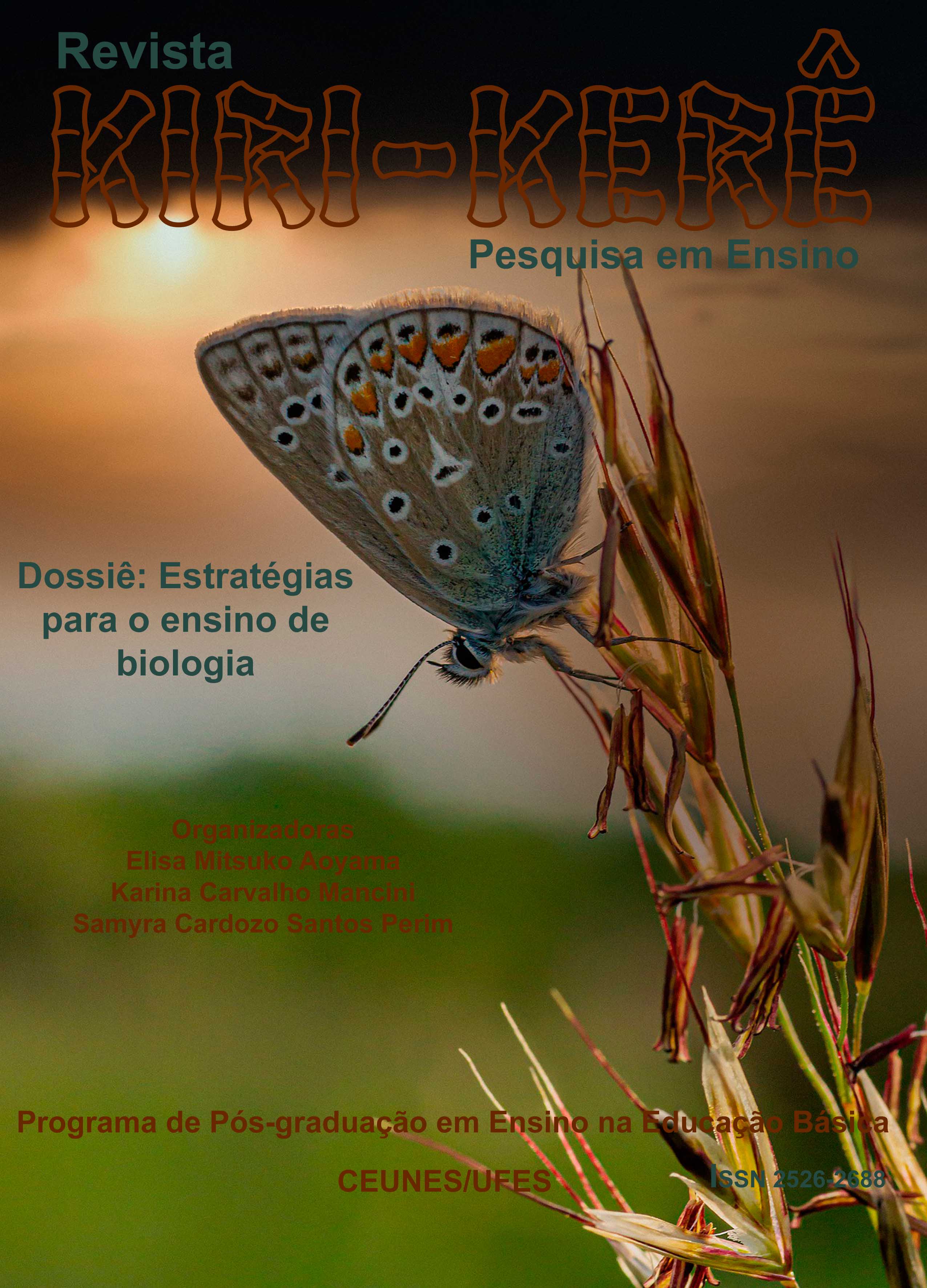Learning proteins through teaching by inquiry
DOI:
https://doi.org/10.47456/krkr.v1i13.36527Keywords:
biochemistry; biology; didatic sequenceAbstract
Teaching biology is challenging and has had a great impact on the increasing spread of fake news. When it comes to teaching biochemistry, the process becomes even more complex since it is a subject of high complexity and abstraction. In this sense, there is a strong appeal for the development of diverse resources for the teaching of biochemistry in high school to facilitate the teaching process and minimize the degree of abstraction that makes learning so difficult. Thus, the present work proposes an investigative didactic sequence on protein content to bring the subject closer to the daily life of students. The investigative didactic sequence consists of four stages, namely: a) the first stage, called “What are proteins?”, a video followed by problem situations that will be investigated by the students; b) the second stage, called “Discovering proteins through practical experiments conducted at home”, in which the groups will perform experiments researched by them and/or indicated by the teacher and will record videos demonstrating the experiments to ascertain the hypotheses raised in the previous stage; c) the third stage, called “Perceiving the structure of proteins”, in which the teacher will explain the constitution and structure of proteins; d) the fourth stage, called “Re-signifying experiments”, where the groups will record new videos explaining the results obtained in the experiments after the third stage. Due to the pandemic, the activity could not be performed with students because of the low adherence to online classes with Google Meet and the lack of face-to-face time for its application when traditional classes resumed. Still, the didactic sequence can be a different way of treating the subject “Proteins” in high school.
Downloads
References
BRASIL. Ministério da Educação. Base Nacional Comum Curricular. Brasília: MEC, 2018.
CARVALHO, A. M. P. et al. Ensino de Ciências por Investigação: Condições para implementação em sala de aula. São Paulo, Editora CENGAGE, 2013.
DE OLIVEIRA, Patrícia Santos; LACERDA, Caroline Dutra; BIANCONI, Maria Lucia. Os aminoácidos nos livros didáticos de Biologia do Ensino Médio e de Bioquímica do Ensino Superior. Revista de Ensino de Bioquímica, v. 14, n. 1, p. 52-72, 2016.
HENRIQUES, L. R. et al. Bioquímica nas escolas: uma estratégia educacional para o estudo de Ciência no Ensino Médio. Revista ELO – Diálogos em Extensão, Viçosa, [S. l.], v. 5, n. 3, 2016. DOI: 10.21284/elo.v5i3.174. Disponível em: https://periodicos.ufv.br/elo/article/view/1128. Acesso em: 8 ago. 2021.
MACHADO, M. S. et al. Bioquímica através da animação. Revista Eletrônica de Extensão - Extensio, Florianópolis: Vol. 1, n. 1, 2004.
SILVA, F. R. L. Análise de fontes de informação como critério no combate à desinformação e fake news. 2019, 60 f. Monografia (Graduação em Biblioteconomia) - Centro de Ciências Sociais Aplicadas, Universidade Federal do Rio Grande do Norte, Natal, 2019. Disponível em: http://monografias.ufrn.br/handle/123456789/9079. Acesso em: 8 Ago. 2021.
TRIVELATO, S. L. F.; TONIDANDEL, S. M. R. Ensino por investigação: eixos organizadores para sequências de ensino de biologia. Ensaio Pesquisa em Educação em Ciências. Belo Horizonte, v. 17, n. SPE, p. 97-114, 2015. DOI https://doi.org/10.1590/1983-2117201517s06. Disponível em: https://www.scielo.br/j/epec/a/VcyLdKDwhT4t6WdWJ8kV9Px/abstract/?lang=pt. Acesso em: 08. Ago. 2021.
Downloads
Published
Issue
Section
License
The authors accept, when sending their works, the assignment of their copyrights.


